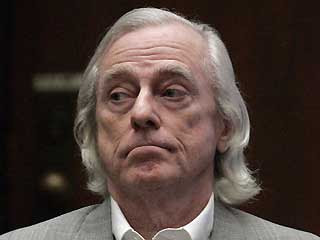(born December 31, 1936)
Anderson was born in Tulsa Oklahoma. His father was a civil engineer and his mother was a journalist, writer and university professor. According to his biography, he stuttered. He eventually overcame his impediment and was recognized for his performance in track, theater, and debate. Anderson was a 1954 graduate of Tulsa Central High School.
He entered Harvard University, where he excelled, becoming a track star and publishing several papers, including one outlining a method for arithmetic operations using Roman numerals. Following a year abroad in Cambridge, where he met his future wife Kathy Duncan, he returned to Harvard, to the Medical School, accompanied by Kathy. They married in 1961 and both graduated a few years later.
Dr. Anderson was employed by the National Institutes of Health, beginning a search to find ways to repair defective genes. Using microinjection methods, the approach was slow and inefficient. After abandoning this approach, his contributions to this field were non-existent until, in 1984, Richard Mulligan of MIT published a method to insert genes by using a retrovirus. Dr. Anderson wanted to test this theory with a human disease. In 1988 his proposal to the Human Gene Therapy Subcommittee was denied, however his request for a hearing before the full committee proceeded, and the trial was approved.
In May 1989 he conducted the first human safety test for gene therapy, a harmless marker injected into a 53 year old man. A year later a therapeutic trial was begun, to replace a defective ADA gene in a 4-year old girl. In 2007, at the age of 21, she was stable, but still had to take regular medication. The scientific consensus on this gene therapy trial was mixed, but there is no question that his work had great impact on the emerging field.
He joined the University of Southern California faculty in 1992 and was the director of the Gene Therapy Laboratories at the Keck School of Medicine and was a professor of biochemistry and pediatrics.
He was the founding editor of the peer-reviewed journal Human Gene Therapy.

0 comments:
Post a Comment